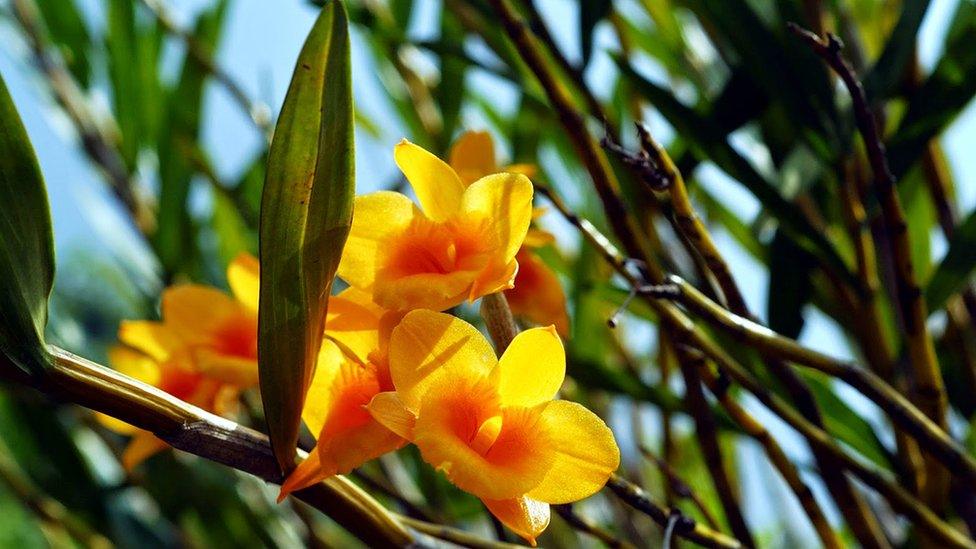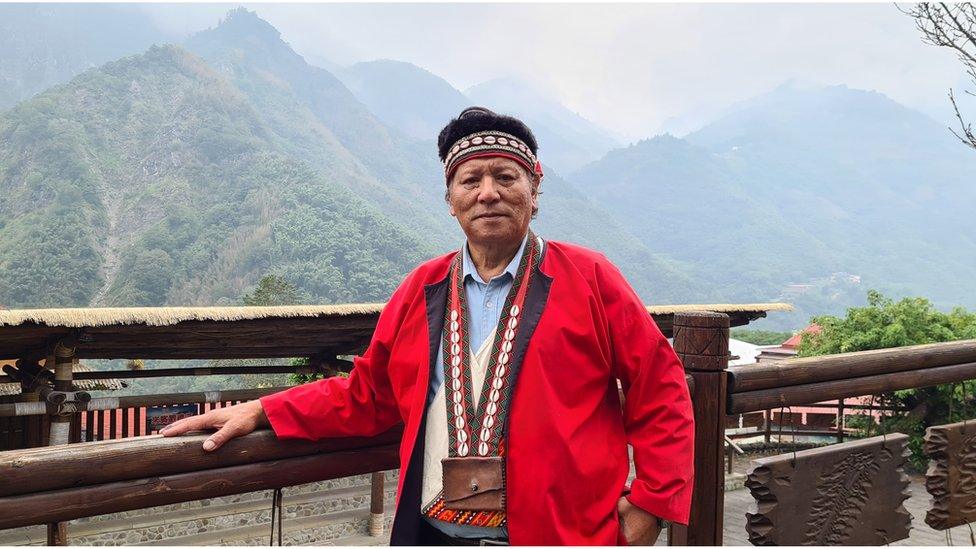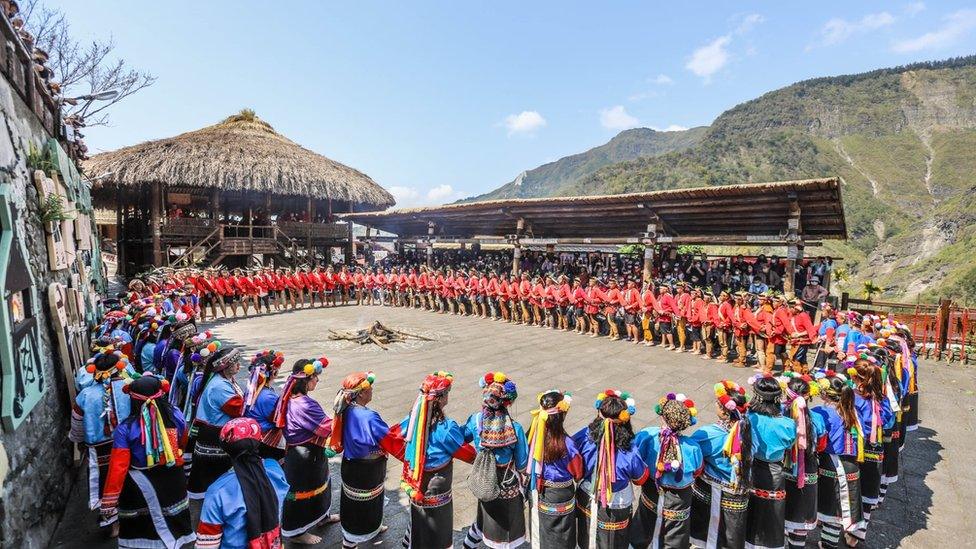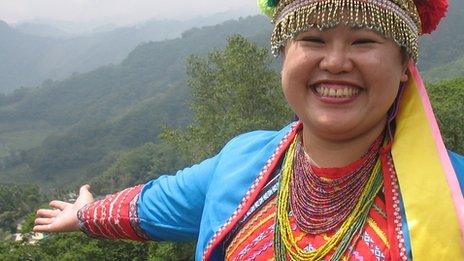Taiwan: The 'God Flower' vanishing because of climate change
- Published

The so-called God Flower is essential to the rituals of indigenous Taiwanese
In the misty mountains of Alishan in central Taiwan, there is a flower that is said to be a gateway to the gods.
The Dendrobium orchid, or golden grass orchid, grows in clumps of between 10 and 20 on glossy green canes. A yellow flower with a velvety orange-fringed centre, it is beautiful but odourless. To the indigenous Tsou people, it is known simply as the God Flower.
"My tribe has to have the God Flower for our ceremonies. Otherwise, God won't be able to find us," says tribal elder Gao Desheng.
It was once found in abundance, flowering outside Tsou homes. But now the Tsou venture ever deeper and higher into the mountainous forests surrounding them in search of it. Sometimes, they even scale trees to find the God Flower.
The tribe is convinced that climate change is to blame for this. The winter must be cold enough - below about 12C - for the buds to form, so they can bloom in the spring. The flowers mostly grow in warm temperate climates at altitudes of 800 to 1,800m (5,900ft).
However based on local temperature data from the Alishan Weather Station, the environmental group Greenpeace says that minimum temperatures in autumn and winter have gradually increased over the past 10 years.
It estimates that as a result of global warming, the average November temperature at the Alishan station will rise from the current 12-14C, to 14-16C by 2050.

Gao Desheng says the God Flower disappearing is inconceivable to him
As a whole, Taiwan has also been experiencing more frequent droughts and warmer weather.
While typhoons are destructive, they are a vital source of water for the island. So when they fail to make landfall, as has happened recently, crops can fail. This has affected not only the rituals of the Tsou, but their livelihoods as well.
Jui-Chiao Chung says her family has been planting bamboo for generations, but continuous droughts mean she has had to adapt what she farms. Without rains, the bamboo crop yield has dropped by more than half in recent years.
At her farm, yellowing stalks were visible in the distance, beyond the deep green coffee plants. They too belong to Ms Chung, who decided to farm coffee instead of bamboo to adapt to scant rainfall. But whatever steps she takes, it seems she is still one step behind.
Ms Chung says she has noticed the coffee beans are darker, an ominous sign of higher temperatures. One bad harvest means her income is reduced immediately. She is now thinking of growing a different crop to limit the effects of the changing climate.
But the Tsou people have no such solution for the vanishing God Flower.
If the flower can't be found or disappears, elder Gao says there is no substitute for it in their rituals. To him such a scenario is inconceivable. But he certainly fears the possibility. He points to a large urn containing the dry remnants of what was once a blossoming God Flower.
Among the Tsou's many deities is the war god Iafafeoi, a protector who is believed to ensure the safe return of young people from the battlefield.
"It is said that the God Flower surrounds the habitat of this deity," An Xiao-Ming, who is in his 40s, explained. "These flowers are placed on the roofs of Kuba, signifying the presence of the divine."
The Kuba, a thatched-roof hall which is the ceremonial and spiritual centre of their village, plays a central role in the three-day Mayasvi, a festival attended by hundreds.

Tsou people gather for the Mayasvi festival
The Tsou men will ask the deity of war to bless their warriors and ward off bad luck. To do this, they must pin the leaves of the golden orchid on their leather hats so that the gods can identify them as Tsou people.
Ancient tradition also dictates that the God Flower cannot be cultivated artificially - it must be found and picked in the wild before sunrise in the early morning, before important ceremonies can begin.
The Tsou tribe is one of 16 officially recognised indigenous tribes in Taiwan. They lived on the island for thousands of years before the majority Han Chinese arrived.
Today, they number around 6,000, out of a population of 23 million. They live mainly in the Alishan mountains, adjacent to the wild golden grass orchids.
Gao Desheng is concerned about the future for his tribe but he says it will depend on what support they get from the government. There is a presidential campaign currently under way and elder Gao said that politicians come and visit but they do not address the serious impact of climate change on the Tsou people's way of life.
Greenpeace agrees, calling the candidates "climate snails" - a dig at their lack of speed when it comes to developing sustainable environmental policies. The renewable energy goals put forward by the three main presidential candidates are not enough to meet net-zero emissions goals, despite climate change being a major concern for voters.
But for the Tsou people, the clock is already ticking.
- Published28 September 2011
